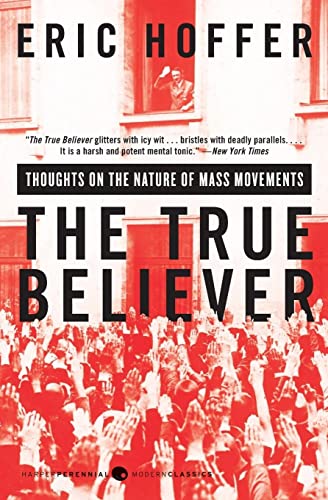
The History and Mystery of Alchemy is now available on Amazon...and it is only 99 cents.
This day in history: English mathematician, astronomer, astrologer, teacher, occultist and alchemist John Dee was born on this day in 1527. He was the court astronomer for, and advisor to, Elizabeth I, and spent much of his time on alchemy, divination and Hermetic philosophy. As an antiquarian, he had one of the largest libraries in England at the time. As a political advisor, he advocated the foundation of English colonies in the New World to form a "British Empire", a term he is credited with coining.
Dee eventually left Elizabeth's service and went on a quest for additional knowledge in the deeper realms of the occult and supernatural. He aligned himself with several individuals who may have been charlatans, travelled through Europe and was accused of spying for the English crown. Upon his return to England, he found his home and library vandalized. He eventually returned to the Queen's service, but was turned away when she was succeeded by James I. He died in poverty in London and his gravesite is unknown.
Dracula author Bram Stoker wrote the following about John Dee:
Even a brief survey of the life of the celebrated “Doctor Dee,” the so-called “Wizard” of the sixteenth century, will leave any honest reader under the impression that in the perspective of history he was a much maligned man. If it had not been that now and again he was led into crooked bye-paths of alleged occultism, his record might have stood out as that of one of the most accomplished and sincere of the scientists of his time. He was in truth, whatever were his faults, more sinned against than sinning. If the English language is not so elastic as some others in the matter of meaning of phrases, the same or a greater effect can be obtained by a careful use of the various dialects of the British Empire. In the present case we may, if English lacks, well call on some of the varieties of Scotch terminology. The intellectual status of the prime wizard, as he is held to be in general opinion, can be well indicated by any of the following words or phrases “wanting,” “crank,” “a tile off,” “a wee bit saft,” “a bee in his bonnet.” Each of these is indicative of some form of monomania, generally harmless. If John Dee had not had some great qualities, such156 negative weaknesses would have prevented his reputation ever achieving a permanent place in history of any kind. As it is his place was won by many accomplished facts. The following is a broad outline of his life, which was a long one lasting for over eighty years.
John Dee was born in 1527, and came of a Welsh race. A good many years after his start in life he, after the harmless fashion of those (and other) times, made out a family tree in which it was shewn that he was descended from, among other royalties, Roderick the Great, Prince of Wales. This little effort of vanity did not, however, change anything. The world cared then about such things almost as little as it does now; or, allowing for the weakness of human beings in the way of their own self-importance, it might be better to say as it professes to do now. John Dee was sent to the University of Cambridge when he was only fifteen years old. The College chosen for him was St. John’s, and here he showed extraordinary application in his chosen subject, mathematics. He took his probationary degree of Bachelor of Arts in 1545, and was made a Fellow in 1546. In his early years of College life his work was regulated in a remarkable way. Out of the twenty-four hours, eighteen were devoted to study, four to sleep, the remaining two being set apart for meals and recreation. Lest this should seem incredible it may be remembered that three hundred years later, the French Jesuits,157 having made exhaustive experiments, arrived at the conclusion that for mere purposes of health, without making any allowance for the joy or happiness of life, and treating the body merely as a machine from which the utmost amount of work mental and physical could be got without injury, four hours of sleep per diem sufficed for health and sanity. And it is only natural that a healthy and ambitious young man trying to work his way to success would, or might have been, equally strenuous and self-denying. His appointment as Fellow of St. John’s was one of those made when the College was founded. That he was skilled in other branches of learning was shown by the fact that in the University he was appointed as Under Reader in Greek. He was daring in the practical application of science, and during the representation of one of the comedies of Aristophanes, created such a sensation by appearing to fly, that he began to be credited by his companions with magical powers. This was probably the beginning of the sinister reputation which seemed to follow him all his life afterwards. When once an idea of the kind has been started even the simplest facts of life and work seem to gather round it and enlarge it indefinitely. So far as we can judge after a lapse of over three hundred years, John Dee was an eager and ardent seeker after knowledge; and all through his life he travelled in the search wherever he was likely to gain his object. It is a main difficulty of158 following such a record that we have only facts to follow. We know little or nothing of motives except from results, and as in the development of knowledge the measure of success can only bear a small ratio to that of endeavour, it is manifest that we should show a large and tolerant understanding of the motives which animate the seeker for truth. In the course of his long life John Dee visited many lands, sojourned in many centres of learning, had relations of common interests as well as of friendship with many great scholars, and made as thinker, mathematician, and astronomer, a reputation far transcending any ephemeral and purely gaseous publicity arising from the open-mouthed wonder of the silly folk who are not capable of even trying to understand things beyond their immediate ken. Wherever he went he seems to have been in touch with the learned and progressive men of his time, and always a student. At various times he was in the Low Countries, Louvain (from whose University he obtained the degree of LL.D.), Paris, Wurtemberg, Antwerp, Presburg, Lorraine, Frankfort-on-the-Oder, Bohemia, Cracow, Prague, and Hesse-Cassel. He even went so far afield as St. Helena. He was engaged on some great works of more than national importance. For instance, when in 1582, Pope Gregory XIII instituted the reform of the Calendar which was adopted by most of the great nations of the world, Dee approved and worked out159 his own calculations to an almost similar conclusion, though the then opposition to him cost England a delay of over one hundred and seventy years. In 1572 he had proved his excellence as an astronomer in his valuable work in relation to a newly discovered star (Tycho Brahe’s) in Cassiopœia. In 1580 he made a complete geographical and hydrographical map of the Queen’s possessions. He tried—but unhappily in vain—to get Queen Mary to gather the vast collections of manuscripts and old books which had been made in the Monasteries (broken up by Henry VIII) of which the major part were then to be obtained both easily and cheaply. He was a Doctor of Laws (which by the way was his only claim to be called “Doctor” Dee, the title generally accorded to him). He was made a rector in Worcestershire in 1553; and in 1556, Archbishop Parker gave him ten years’ use of the livings of Upton and Long Leadenham. He was made Warden of Manchester College in 1595, and was named by Queen Elizabeth as Chancellor of St. Paul’s. In 1564, he was appointed Dean of Gloucester, though through his own neglect of his own interest it was never carried out. The Queen approved, the Archbishop sealed the deed; but Dee, unmindful, overlooked the formality of acceptance and the gift eventually went elsewhere. Queen Elizabeth, who consistently believed in and admired him, wanted to make him a bishop, but he declined the responsibility. For once the formality at consecration:160 “Nolo Episcopari” was spoken with truthful lips. More than once he was despatched to foreign places to make special report in the Queen’s service. That he did not—always, at all events—put private interest before public duty is shown by his refusal to accept two rectories offered to him by the Queen in 1576, urging as an excuse that he was unable to find time for the necessary duties, since he was too busily occupied in making calculations for the reformation of the Calendar. He seems to have lived a most proper life, and was twice married. After a long struggle with adversity in which—last despair of a scholar—he had to sell his books, he died very poor, just as he was preparing to migrate. At his death in 1608 he left behind him no less than seventy-nine works—nearly one for each year of his life. Just after the time of the Armada, following on some correspondence with Queen Elizabeth, he had returned to England after long and adventurous experiences in Poland and elsewhere, during which he had known what it was to receive the honours and affronts of communities. He took back with him the reputation of being a sorcerer, one which he had never courted and which so rankled in him that many years afterwards he petitioned James I to have him tried so that he might clear his character.
If there be any truth whatever in the theory that men have attendant spirits, bad as well as good, Dr. Dee’s bad spirit took the shape of one who161 pretended to occult knowledge, the so-called Sir Edward Kelley of whom we shall have something to say later on.
Dee was fifty-four years of age when he met Sir Edward Kelley who was twenty-eight years his junior. The two men became friends, and then the old visionary scholar at once became dominated by his younger and less scrupulous companion, who very soon became his partner. From that time Dee’s down-fall—or rather down-slide began. All the longings after occult belief which he had hitherto tried to hold in check began not only to manifest themselves, but to find expression. His science became merged in alchemy, his astronomical learning was forced into the service of Astrology. His belief, which he as a cleric held before him as a duty, was lost in spiritualism and other forms of occultism. He began to make use for practical purposes of his crystal globe and his magic mirror in which he probably had for long believed secretly. Kelley practically ruined his reputation by using for his own purposes the influence which he had over the old man. His opportunities were increased by the arrival in England of Laski, about 1583. The two scholars had many ideas in common, and Kelley did not fail, in the furtherance of his own views, to take advantage of the circumstance. He persuaded Dee to go with his new friend to Poland, in the hope of benefiting further in his studies in the occult by wider162 experience of foreign centres of learning. They journeyed to Laskoe near Cracow, where the weakness of the English scholar became more evident and his form of madness more developed. Dee had now a fixed belief in two ideas which he had hitherto failed to materialise—the Philosopher’s Stone and the Elixir of Life, both of them dreams held as possible of realisation to the scientific dreamer in the period of the Renaissance. Dee believed at one time that he had got hold of the Philosopher’s Stone, and actually sent to Queen Elizabeth a piece of gold taken from a transmuted warming-pan. As it is said in the life of Dee that he and Kelley had found a quantity of the Elixir of Life in the ruins of Glastonbury Abbey, we can easily imagine what part the latter had in the transaction. It was he, too, who probably fixed on Glastonbury as the place in which to search for Elixirs, as that holy spot had already a reputation of its own in such matters. It has been held for ages that the staff used by Joseph of Arimathea took root and blossomed there. Somehow, whatever the Glastonbury Elixir did, the Philosopher’s Stone did not seem to keep its alleged properties in the Dee family. John Dee’s young son Arthur, aged eight, tried its efficacy; but without success. Perhaps it was this failure which made Kelley more exacting, for a couple of years later in 1589, he told his partner that angels had told him it was the divine wish that they should have163 their wives in common. The sage, who was fond of his wife—who was a comely woman, whereas Kelley’s was ill favoured and devoid of charms—naturally demurred at such an utterance even of occult spirits. Mrs. Dee also objected, with the result that there were alarums and excursions and the partnership was rudely dissolved—which is a proof that though the aged philosopher’s mind had been vitiated by the evil promptings of his wily companion he had not quite declined to idiocy.
























